- Solicitați un link
- X
- Alte aplicații
- Solicitați un link
- X
- Alte aplicații
Dragon Age: Origins had a great idea, and that idea was: origins. Bespoke prologues for each character archetype, they give you a personal introduction to the game that's completely different if you're an elven commoner living in a slum or a dwarven noble so privileged you can test the sharpness of your hammer on nearby peasants.
These origins would have made the perfect introduction to an open-world sandbox RPG, but turned out to be an awkward fit for one of BioWare's narrative RPGs—the kind that let you choose which order to do things, but still demand you do them. No matter what, Dragon Age: Origins tells the story of the Hero of Ferelden who joins the Grey Wardens and saves the land from Blight. Pick as many of the selfish, nasty, or just plain disinterested options in your origin as you like; you're going to get funneled into that plot regardless.
You can see why they didn't bother with them in the sequels, even before you get into the issue of all that "content" only a sixth of your audience will see. Still, the origins are your first taste of Dragon Age: Origins, and you'll want to choose one that makes a decent first impression. Here they are, ranked from worst to best.
Human Noble
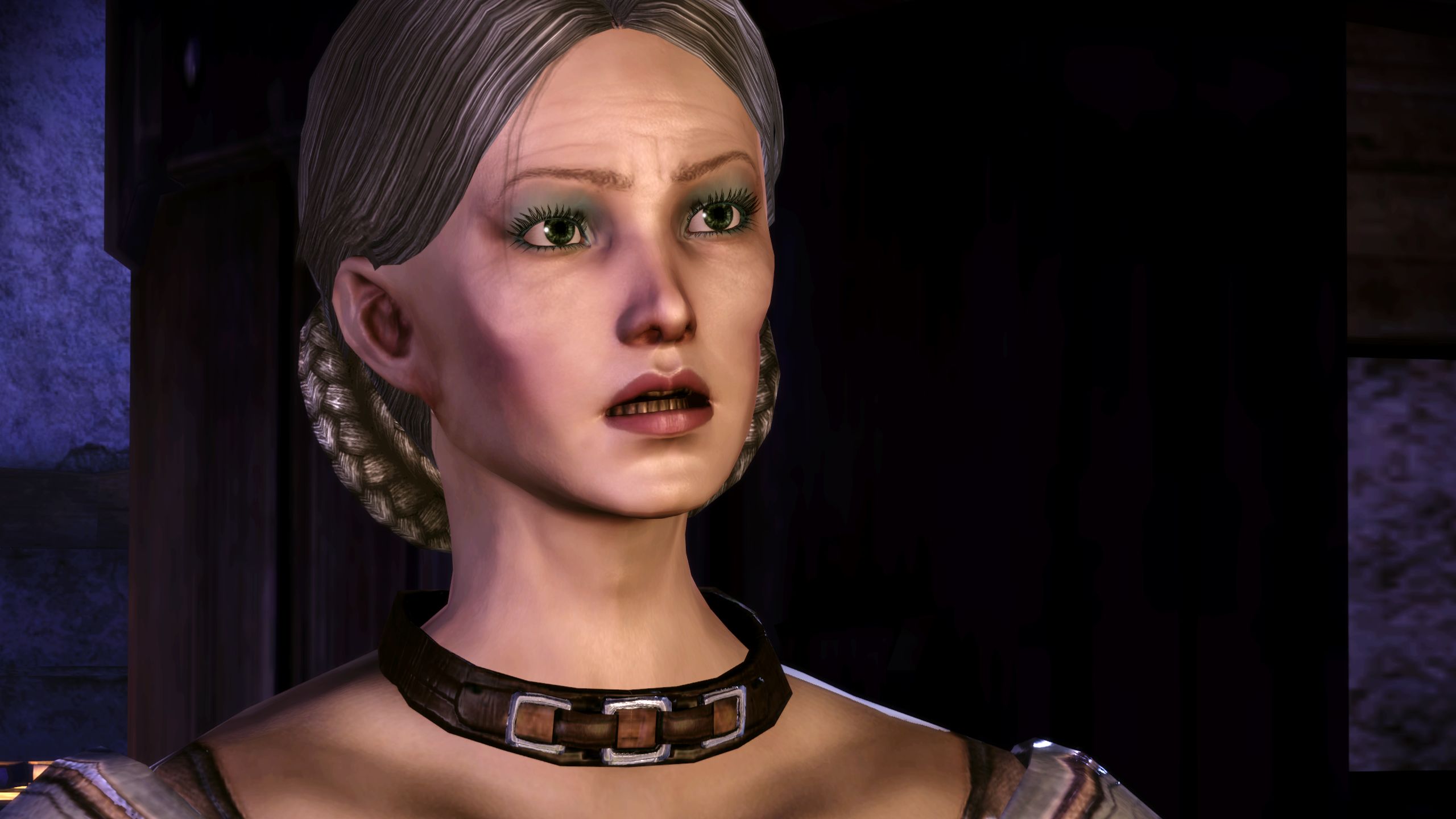
Some people like Human Noble because it's the origin with the most impact on later events in the game. It sets up a villain you'll meet later, and makes that confrontation feel much more personal. Shame it doesn't put as much effort into the origin itself though, which is so generic the combat tutorial is literally killing rats in a cellar.
It's also quite a narrow straitjacket. You're cast as the second-youngest child of the Cousland family, with an older brother who doesn't seem that old and a mother who has gray hair yet still looks like Wonder Woman when she armors up. If you've made a character who looks middle-aged or older, which is real easy to do in the character creator, all the scenes where your dad calls you "pup" come off quite odd. Though other origins assume you're fairly young, they don't do it in such a narrow band. The Dwarf Noble is also a second-oldest child, but gets a baby-faced younger brother and an older one who looks like he's got one foot and several extra toes in the grave, giving you a wider range to fit into.
But the main problem with the Human Noble origin is that it rushes through a predictable plot that clearly wants to be a George R. R. Martin story of blood and betrayal, though the Couslands are no Starks. It comes off more like a bunch of theater students doing Shakespeare in the park. You get slightly more of Tim Curry's performance as Arl Howe, but that's all it's got going for it.
Dwarf Commoner
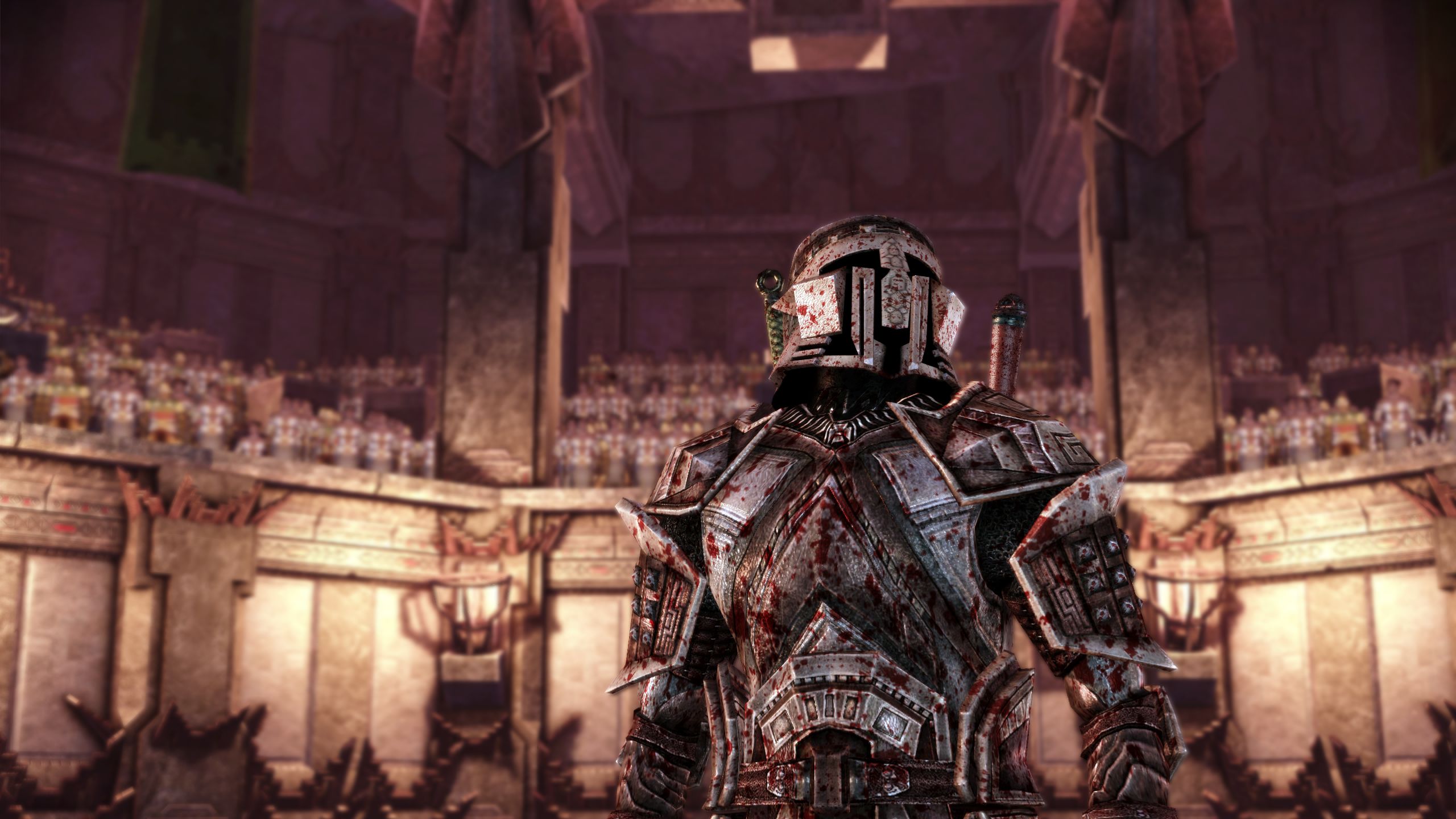
In terms of atmosphere, the Dwarf Commoner origin is a huge step up from Human Noble. The underground city of Orzammar has a gap between the rich and the poor so wide you could drive an ogre through it, and playing a guttersnipe who works as an enforcer for the same gang boss who pimps out your half-sister gives you a real bottom-up perspective on things. From the confrontation with your alcoholic mother to the dirty work you're forced to do to protect your family, it's relentlessly grimy and bleak.
Where it falls down is the way it steers you into leaving Orzammar and joining the Grey Wardens. By a fluke of fate you end up competing in a gladiatorial tournament and conveniently every opponent you face—including a couple of champions of dwarfkind—is a total pushover. You get plucked from obscurity because you ace a cakewalk combat tutorial.
Dalish Elf
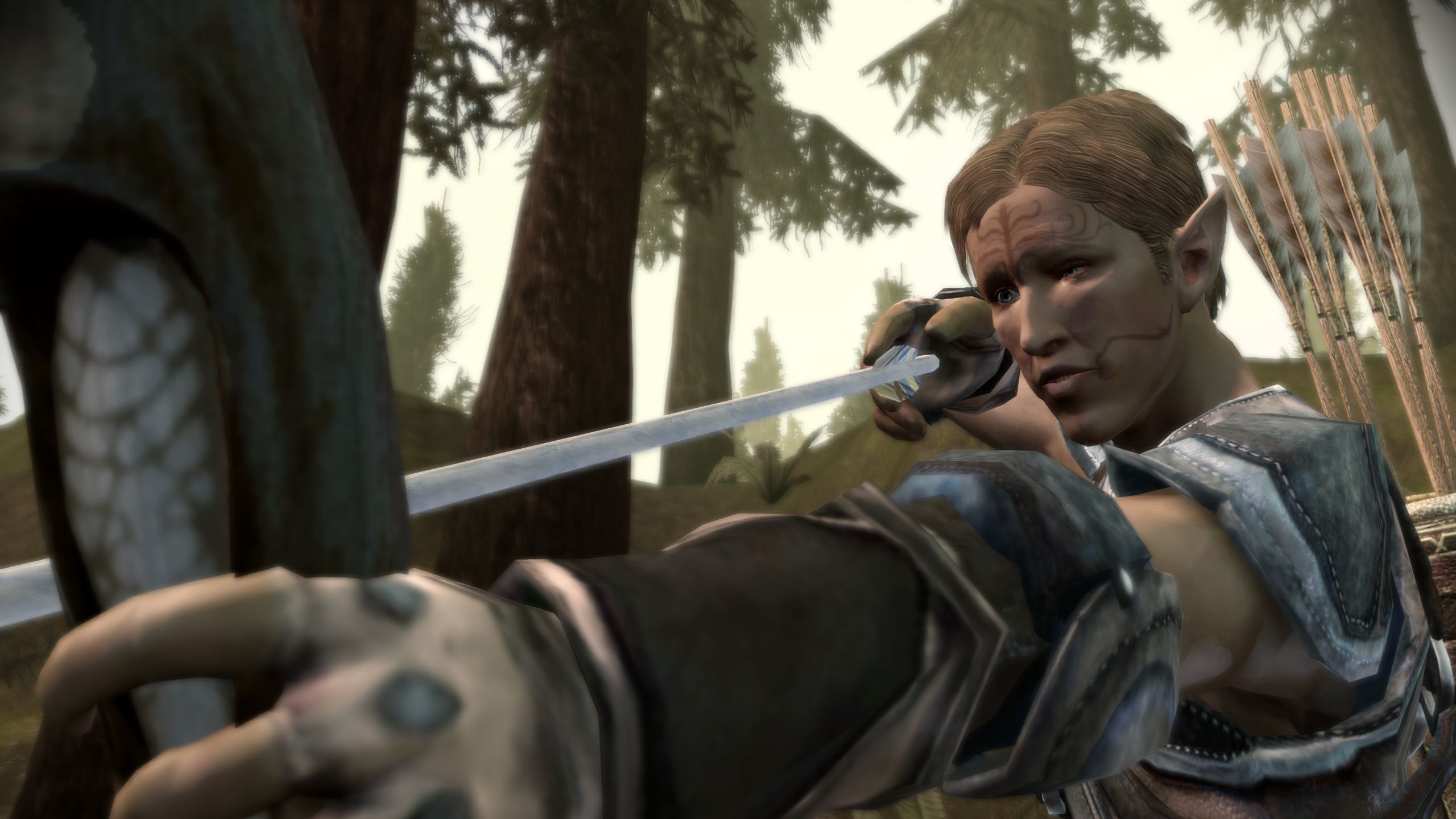
While the other origins set up fateful encounters later in the game where you'll face the consequences of decisions you made back in the prologue, often going home to see what's changed, the Dalish Elf is more disconnected. You're part of a tribe of nomadic forest folk who pack up their camp whenever humans get wind of it, a rootless wanderer born to become an adventurer.
That said, it does set up the broader Dragon Age series quite nicely. The Dalish will be an important faction in subsequent games, your fateful encounter with a magical Eluvian mirror pays off in the lore the series later comes to rely on, and you get to meet Merrill, who will go on to be a companion in the sequel. The Dalish Elf origin is a solid setup for a Grey Warden too, giving you a reason to hate the darkspawn and want to take the fight to them—even if you are a slightly basic fantasy elf who likes trees and is probably good with a bow.
City Elf
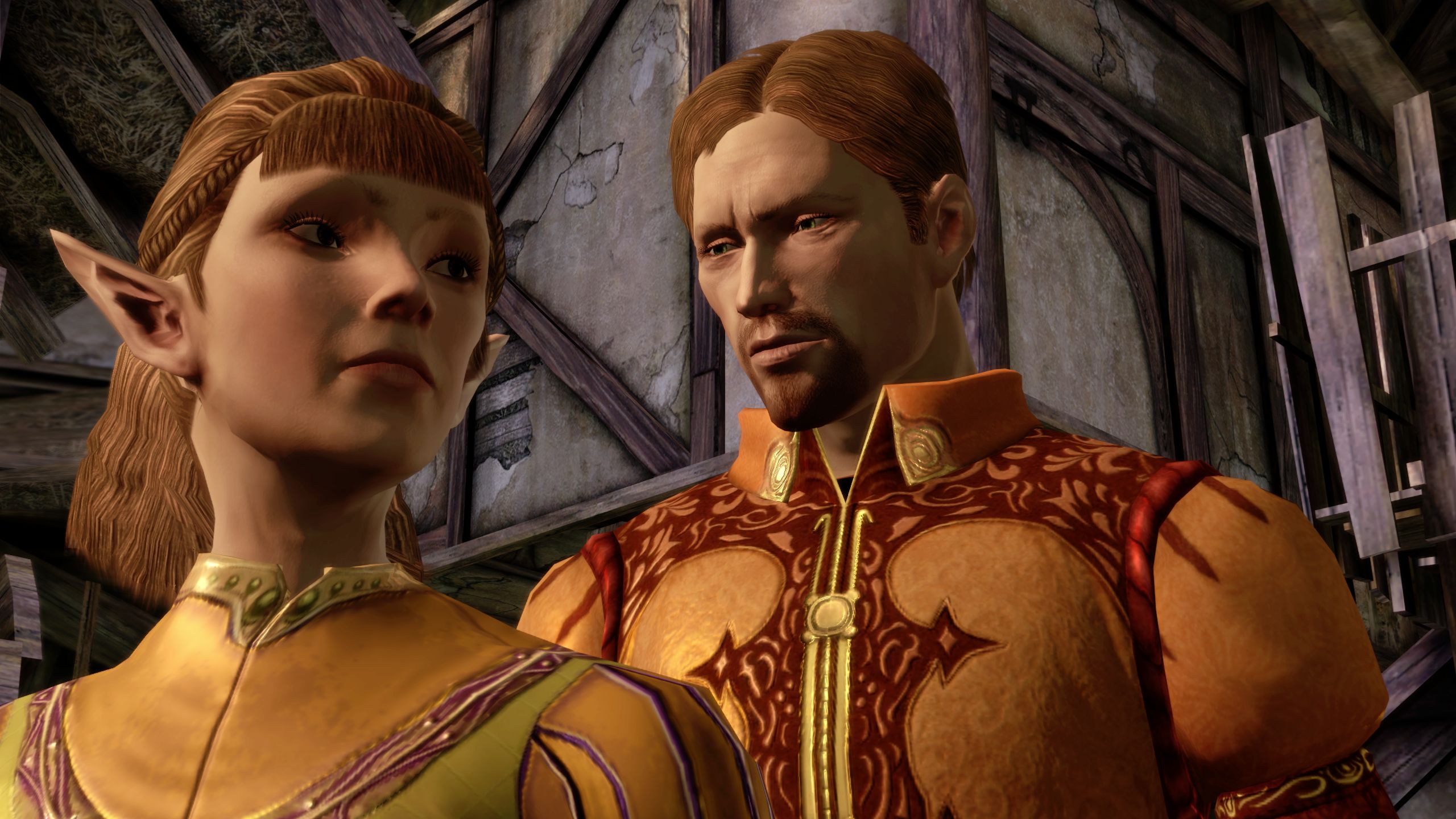
By contrast, the City Elf origin makes it plain that Ferelden is an our elves are different kind of place. You live in an alienage, a walled district within a human city where they keep the elves until they need to hire a cheap servant or torment someone for fun. Still, there's a real sense of community in the alienage and everyone sticks together and today's your wedding day and certainly nothing would go tragically wrong on someone's wedding day. Right?
Several of the origins set you up for a roaring rampage of revenge, and this is the one that does it best. If you play as a woman you basically end up with the backstory of The Bride from Kill Bill, an elven Uma Thurman who gets a sharp sword and a whole lot of deserving shitheads to plunge it into. It's the Red Wedding, and you've just been handed the paintbrush.
Circle Mage
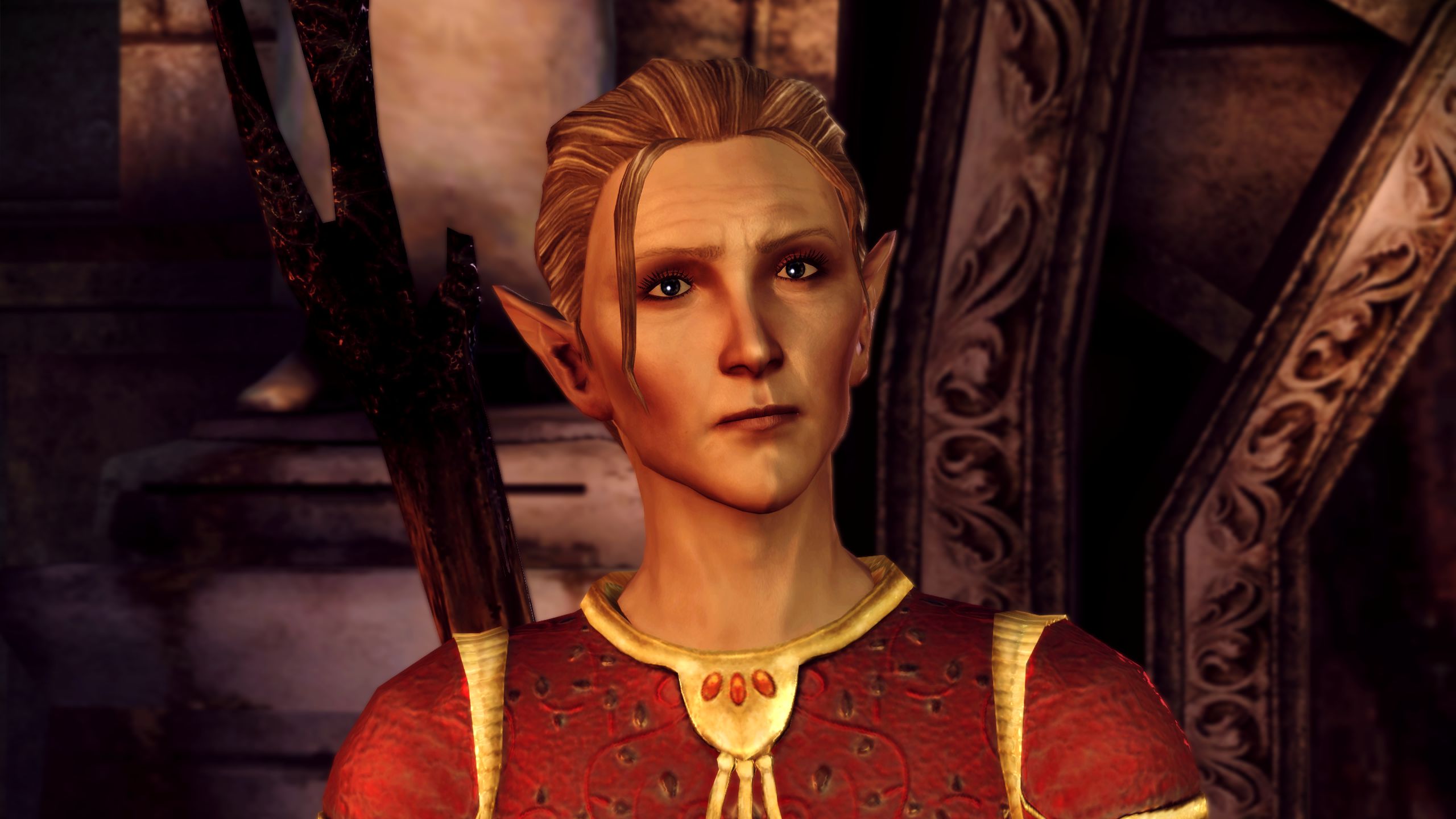
If you want to be plugged directly into what Dragon Age is about, the Circle Mage origin is for you. Much of the series is focused on the conflict between oppressed mages and repressed templars, and playing a wizard in any of the games gives you a stake in that conflict. (If you don't choose to play a mage in Dragon Age 2, it gives you one as a sister just to make sure you give a damn about how much life sucks for wizards.)
The Circle Mages live most of their lives in a tower where they're under constant guard, tested for signs of demonic possession and blood magic dabbling in ways so callous they seem guaranteed to make them want to rebel and fight for their freedom—even if it means dealing with demons and dabbling in blood magic, as this questline makes clear. You'll want to get the hell out of this tower and go explore the rest of Ferelden at any cost, even if it means signing up to join the Blight War. Which is good because that's what you'll be jolly well doing.
Dwarf Noble
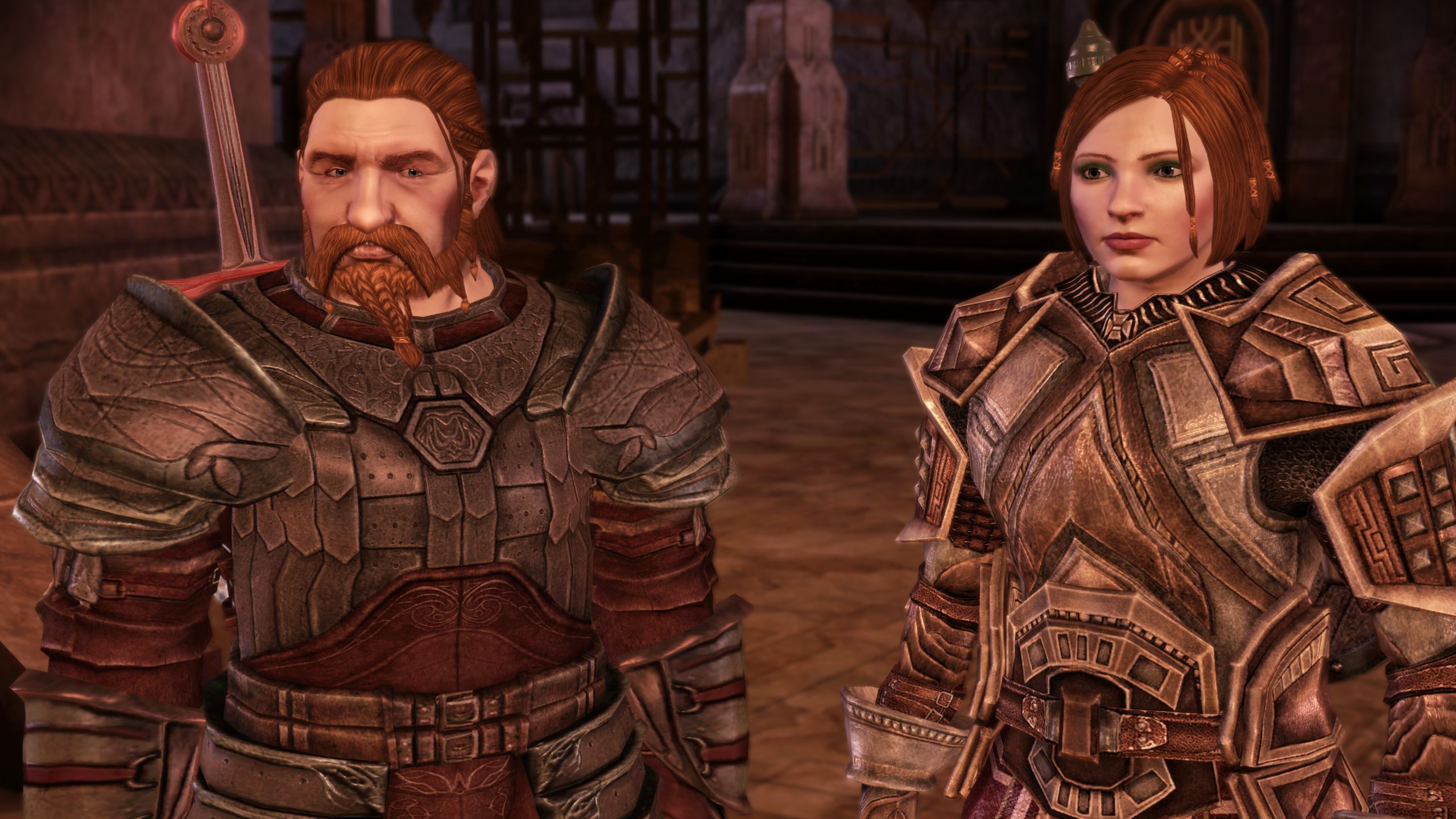
Another fantasy game might make its wealthy dwarves honorbound and dutiful. Dragon Age says to hell with that and makes them a pack of absolute degenerates. To emphasize just how great it is to be born into power, the Dwarf Noble origin gives you a loyal sidekick with the voice of Spike Spiegel from Cowboy Bebop (Steve Blum) who supports everything you do and will casually have people killed if you so much as suggest they're a bit irritating.
It's not all debauched aristocracy, though. After a feast (that can end in a duel to the death), you're introduced to the other side of the dwarves of Orzammar. As the main victims of the Blight in ages gone by, they're still up for fighting darkspawn on the daily. There's a whole Deep Roads dungeon crawl in this well-stuffed turducken of a prologue, which also manages to incorporate the plotline of genteel intrigue that's been building throughout.
By the time it's done you've had a story that's satisfying on its own, and ends with you well-placed to go off and dedicate yourself to fighting darkspawn on the surface. Some of the other origins do just as good a job of positioning you as someone who might be the hero Ferelden needs, and who has some backstory business to return to in the future. The Dwarf Noble origin does those things while also being fun from start to finish.
source https://www.pcgamer.com/games/rpg/every-origin-in-dragon-age-origins-ranked
- Solicitați un link
- X
- Alte aplicații
Comentarii
Trimiteți un comentariu